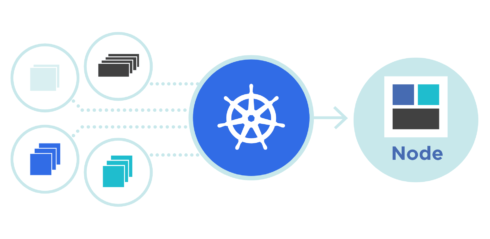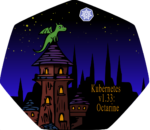
The open-source container orchestration project Kubernetes has seen significant growth since it was first released in 2015. Just in the last year, more specialized use cases have come out for the project, but Stephan Fabel, director of product at Canonical, the company behind the Ubuntu Linux distribution, warns users about taking Kubernetes too far in 2020.
Fabel sees more companies starting to rethink their strategies around Kubernetes as interest surrounding serverless technology and automation grows, but he worries they are trying to turn Kubernetes into something it’s not.
“One of the biggest mistakes people can make is to… take portions of Kubernetes…but leaving everything else aside or forking away the codebase to turn Kubernetes into something that it wasn’t intended to be,” he said.
Fabel noted users can learn from previous iterations of infrastructure-as-a-service and projects like OpenStack. In the early days of the OpenStack life cycle, some people went overboard with trying to make everything as a service, instead of focusing on what really mattered. “Do one job, and do it well rather than try to be the thing that solves all the people’s problems,” he explained. “Kubernetes has a super fresh approach and [has] a lot of advantages over OpenStack by remaining focused,” but it is not a silver bullet.
Secondly, as companies revisit their Kubernetes strategies, Fabel wants them to remember that Kubernetes is the start of a journey. “It is not the end of it. You don’t expect to deploy Kubernetes and solve your problems. You still have to think about simple physics. It is still a workload. There might still be stateful pieces in it. There is still a path from the stateful applications that are deployed right now. There is still a path from those traditional workloads to microservices-based scaled-out containerized workloads, and that path still needs to be taken into account,” he said.
Also, for companies starting to work with bare-metal infrastructure and implementing with Kubernetes, there are going to be problems to look out for that Kubernetes won’t be able to solve on its own. For instance, Kubernetes doesn’t have a kernel. “It needs a kernel. In other words, it needs a hardware interface for the workloads to actually be effective at the end of the day,” he noted.
What Fabel does like about Kubernetes is its simplicity in terms of how straightforward it is to orchestrate a container. Once people move away from the straightforward use case, it becomes more complex, but there have been some interesting use cases to come to fruition that have worked out really well, he explained.
“We now see for the first time the implementation of actual production use cases that go live in a meaningful way,” he said. “Kubernetes really experienced a lot of growth and attention from the innovative projects that are out there in the industry and that really is opening the door to all kinds of super-exciting use cases. Think of open retail, hospitality solutions, autonomous driving, image processing, security, IoT… there are a whole bunch of fields that are now more and more open to Kubernetes as a common API to orchestrate workloads across all of these devices and tie those into a cloud core.”
For example, he sees containerized network functions for telecom use cases, edge use cases, and AI and ML at the edge. “We are starting to see telecom companies actively explore Kubernetes for network functions,” said Fabel. “We have seen network equipment providers increasingly steering their R&D towards containerized network functions and we have seen Kubernetes reality take off as the next-generation platform for the telecom edge.”
Additionally, Fabel finds Kubernetes as a job execution function an interesting and overlooked use case. “It’s a niche thing, but I do like — especially in the context of machine learning where you look at projects like Kubeflow — you can split a job to Kuberntes and then Kubernetes just executes that job on the basis of scheduling machine learning jobs in this case,” he said.
As Kubernetes continues to grow, Fabel hopes to see it become as lean as possible. “As any project of this magnitude and this size with that amount of traction it carries an inherent risk to try to become everything to all people and I would caution against that. I don’t think that it behooves us to call it a complete victory right now,” he said.








